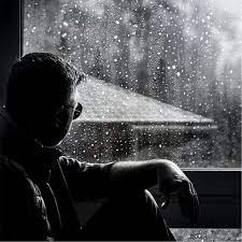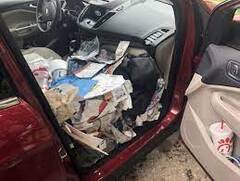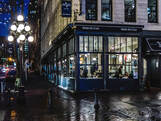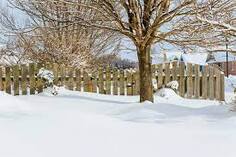
When I was young, art and literature were treated, for the most part, as extraneous fluff, an escape, entertainment for girls resting in their armchairs or for boys allergic to doing something useful, like cleaning the cow shed. Unless literature asserted a reformed Christian worldview, it had limited usefulness. You could find redemption where your hands met a pitchfork. Hands in a book, unless it was the Bible or Heidelberg Catechism, was idle dreaming. The odds were stacked against me developing any kind love for art and literature. To compound the matter, as a kid, I didn’t come by reading naturally. I was never a book worm or voracious reader like some kids. I was a slow reader and fell behind quickly. Later I learned my condition was not so uncommon and had a name. I believe I had dyslexia or, as the name implies, “a reading disability,” though I was never diagnosed. At the time, people called it “dumb,” which is dumb to say. I struggled, I cried, and I complained to my mom that I “just couldn’t get it” while the other kids were speeding ahead. The experts have further broken down dyslexia into several kinds. One term I discovered is “information-processing speed challenges.” In the words of Charlie Brown, “That’s it!” The phrase is descriptive, and the word “challenges” is appropriately non-judgmental and sympathetic, politically correct. I was a slow reader then and still am, though now I believe my reading pace has as much to do with taking time to ruminate over the words, sentences, or plot structure as to do with dyslexia. And so, because reading was a struggle, I never enjoyed it much as a kid. My mom tried to feed me some of her favorite titles (about girls stuck on farms) with worn bindings, which only worsened my interested. Then someone pushed a Hardy Boys book under my nose, an adventure. There seemed to be hundreds of Hardy Boys books. I’d finish reading one while my brother was on his third or fourth, but I was starting to enjoy reading. At some point, maybe in junior high, I remember coming upon a book called My Side of the Mountain by Jean George. (I notice a new edition of it has come out recently.) I liked the cover and the sound of the title, and once into it, I found the story resonated with a dream I had of living on my own in the wild, like Davey Crocket. I was so immersed in the story that I lost sense of time and place, and I thought I’d figured out something -- “Pick books that feel like you, and maybe you can become a better reader.” A few years later, I read the first ever adult novel that grabbed my imagination--The Grapes of Wrath. I can still feel what I felt reading it for the first time. I was Tom Joad in the Dust Bowl, squatting in the fields, holding the dry Oklahoma soil in my hand and watching it sift through his fingers. I felt the heat, the dust in my eyes and hair, heard the murmur of the engine of the truck that took the Joads to Calif Without realizing it, I had surrendered myself to Steinbeck's world. I'd let myself become vulnerable to the power of well-chosen words and the power of a story those words could create, how stories, even imagined ones, could transport me. And I liked the effect reading his novel had on me. I felt like a more empathetic and compassionate person, and for some reason I felt more confident. Contrary to opinions of my Calvinist subculture, I found my imagination wasn't a suspect stranger to be held at a distance. It was a well to be tap for all it was worth. I learned that good literature was not simply a distraction or an escape. A good book could open up a person 's world and make his life more meaningful. Even “non-religious” books could touch the spirit of a person and help him realize God’s image in himself.
0 Comments
A February dawn seldom breaks pastel over a sun-soaked horizon, more often creeps grey like a duvet over bare limbs, eaves, and dormant beds. February dawns do not take time to smile languidly on sentimental wishes plucked from flower petals, or found in a four-leaf clover or on a bed of hay. February argues against sensible minds awaiting a fresh start with bright spring greens, warm light, and tennis courts long laid fallow, and simply demands that we listen. So I listen and walk before the city takes shape, a chill rain tapping a syncopated beat on my parka, and I am brought back suddenly on a winter duck hunt with Don, shotguns cradled in folded arms against the drizzle, me hoping I won’t have to put a finger to a metal trigger and shoot. Then I hear his voice when a varied thrush trills across the park, piercing the drum of rain-- his low dozy chirping, his sudden rush of laughter at something said, an old joke, a memory lost, then a burst of surprise at some beautiful thing a sensible person would never notice. A low trill from a thrush, a gust of wind, tree limbs waver. I lift my face, awash. In the rain pellets I hear his halting voice the days before he slipped away, affirming February’s argument—love is eternal.  I’ve often thought of February as the drabbest, most uninteresting month of the year. We’ve all finally come down off the high of Christmas and New Years events, which we only vaguely remember, like floating through a farmers’ market. The booze is put away, mostly. So here's February, one month with no big holidays. What to do? It’s still plenty dark out, too. And there’s the rain, more accurately the wet stuff coming down that can't decide if it’s snow or rain, mocking this season lolling between light and darkness, life and death. Oh, and don’t forget seasonal affective disorder, if you haven’t noticed it in my tone. Do I sound sorry for myself? It gets worse. Other than the Super Bowl, February is deadsville for sports fans. Most everyone’s NFL team is in hibernation. The hockey all-star break lasts forever, and the Canucks have already mailed it in, so there’s that. Baseball isn't here yet, nor March Madness. This is Sports Dead Zone. My wife, who loves Sports Dead Zone, thinks February is God’s gift to women, and that he put Valentine’s Day in the middle of it, when there’s no sports, so women have more chance of getting men to pay attention. I have to admit, she might be right. Maybe we need the discipline of February to compel us to remove ourselves from the distractions and simply hibernate with those we love. Hibernating can be a good thing in a number of ways. Taxes are still a ways off. We can catch our breath and rest from the rush, maybe even read a book in a couple sittings rather than trying to finish it over twelve months. (Did I say “book”?) At the risk of getting a little mushy, hibernating is a time to look inward and examine ourselves, see what’s making us tick. What gives us meaning and joy? Is that my wife grabbing me and forcing me to look her in the eye? What? You want to massage my toes while we watch The Only Murders in the Building? Okay. You’ve probably heard about the eighty-year study that’s been getting a lot of press. The question the researchers have asked over the years is, What makes people happy? The answer varies, but the researchers have found a profound consensus around one answer – the quality of our relationships. They found the happiest people are those who have healthy relationships with family, friends, and acquaintances. They also found that it’s never too late in life to “become happy.” That’s encouraging. The researchers further challenge us to take this test. Call or text someone you haven’t connected with recently and ask them for just eight minutes of their time just to talk. Those that have done the test say the chat has made them feel lighter, happier. When I did my theological studies, one constant theme that came through in almost every class was that faith is not merely something we think about and put down in our favorite propositions or doctrines. Faith is relational, or it’s nothing at all. I fall back on that constantly. Not only is faith in God a person-to-person relationship, but that also means my faith in my family and friends, my commitment to them, is a reflection of the quality of my relationships with them. February has reminded me that I want all of that.  Our car has been broken into three or four times over a few months, and I’ve noticed a pattern. It appears to be the same person each time. No windows are broken, no damage done, the gas gage is unchanged, but whoever it is leaves the same mess—the glove compartment splayed open with its contents spilled over the passenger seat and floor. And because we never leave anything valuable in the car, nothing is stolen, except for one thing. A pack of gum is missing from the door pocket. My question of how he (or she) gets in the car is overshadowed by my curiosity. Why continue going through the risk of getting caught just for a pack of gum? The first time one of these break-ins happened I was miffed, feeling a bit violated, but thankful we hadn’t lost anything. When it happened again—again the glove compartment spewing its contents, gum gone—I noticed a tire pressure gauge, not ours, left on the seat. My curiosity gave way to my imagination. Being a writer, and having occasionally imagined myself to be a forensic investigator, I began creating a profile of this mystery thief. I presumed it was a guy rather than a girl, just a hunch. Probably a biker by the tire gauge he left, young, nightcrawler type, risk-taker, marginalized, unemployed, homeless, few social connections. A down and out teen? After the tire gauge, other items started appearing. One time I found a hand cleanser, which made me think he was being covid safe, but it didn’t look used. Next a pair of cheap sunglasses were left on the dash. Another time the tire gauge was gone but returned several months later. Most surprising of all, I started to feel a curious empathy for this kid. I thought, Yeah, this could have easily been me at his age if circumstances in my life had gone a different way. I shared my thoughts with Diane, but she thought I was being too sentimental about it, and the image of “the kind thief” I’d conjured, she thought, was going a bit too far. Maybe she was right, and I was developing a sort of “car-thief Stockholm syndrome.” But I still thought about him and wondered. Why did he leave the items in the car? Was he just forgetful? Mentally ill? Was it a way of saying, “Forgive me but I can’t help myself”? Were these things a kind of payment to placate us, or simply a way of saying “thank you for your trouble.” Months went by without another visit, and I thought maybe he’d grown up, changed, or moved, and we wouldn’t "see him" anymore. I was surprised by a sense of loss I felt. But this Christmas he came back again. This time, after ransacking the glove compartment and finding nothing of value again, he left a CD without a label. I pop it into the car’s CD player, expecting a clue of some kind, a message perhaps, to give us some insight to who he really was and why he kept coming back. The CD is a compilation of Christmas carols. They’re mostly secular oldies, sentimental renditions of “White Christmas,” “The Most Wonderful Time of the Year,” and so on, cajoling us to be happy without saying why we should be, other than because Santa Clause is coming and because our soggy “weather is so delightful.” Then, near the end of the CD I notice one of my favorites, a real Christmas carol—“Oh, Holy Night.” The carol talks about a hurting world below a starry night sky of promise, a world long in travail and waiting for Jesus’ birth. One line jumps out—“A thrill of hope, the weary soul rejoices, for yonder breaks a new and glorious morn!” and it hits me beneath my ribcage. I can’t help muttering “thank you,” and I send up a prayer for the break-in kid, whom I’ve never met but feel like I know. I pray when his long night is over, he’ll see a glorious morn and he’ll have found the promised Christmas he’s been looking for.  I lost my sight when I stepped out of the Vietnamese café into the dank December night, my take-out for the family secured. Put off by the sour-faced service, the indecipherable English, the wait, the dismissive good-bye, feeling piled on after a day of contingencies and casualties, I imagine racism from the waiter. I head out and rip off my mandatory mask as the strap catches on my glasses and sends them flying into the night. I'm immediately blinded, peering down at the pavement as dark and expansive as the night sky. I take a cautious step, hoping not to feel a crunch underfoot, vainly hoping to see black frames against a pitch-black sidewalk. On my knees, my hands scan the ground like a blind man—the search futile. It’s a curse from the day and the café. The Asian manners laugh in my head. Then to my right, the vague outline of an elderly woman. She approaches, shuffling, muttering something in Vietnamese, I presume. “My glasses” I plead, motioning to my eyes, “lost.” She stoops gingerly, pointing to the ground. Reaching where she points, my hand falls on the distinct outline of spectacles. My glasses again properly placed, the night comes into focus-- the sidewalk, a lamppost, a tree. I'm saved. Relieved, humbled and contrite, I turn to thank the woman who’s given me back my sight, but she’s not there, disappeared like an angel into the night.  You look back on another full year, stilled, regretful , unfilled. You've yielded to the impossible self-imposed expectations, to the intoxicating allure of more of everything because less means less, you're told, but more needs more needs more, you know. After misadventures, failures, paralysis from loss, the crash, the crush, the cold, you find you’ve forgotten exactly what joy feels like-- a bygone emotion you hung up and left behind somewhere in a childhood Christmas tree. Just when you’ve settled for the endless malaise, you return home from a family outing, gone longer than you’d planned because the kids demanded ice cream for Christmas. And when you open the door to a dark house, your dog Jimmy greets you ecstatic, barking, the long-awaited orphans come home. Bursting down the hall and back, he rounds the table twice, twisting, twitching, flipping—the pack is back intact! Unable to contain himself, he smiles up at his beloved regathered, wagging, as jubilant as the dog in the Bethlehem stable. And just then, in the re-membering, the joy you’d forgotten returns.  Awake in bed at 2 am, the house is dark, nothing stirring but the mouse running around in your head-- was it a dark scarf she wanted or white? The kids aren’t happy you forgot the advent calendar. Better not forget the Christmas tree. You’ve bought nothing for anyone yet-- better shop online again this year. Must get a present for your co-worker too, who will give you a book you won’t want, won’t read, will shelve to gather dust. The wind howls, a storm threatens, limbs knock on the window to remind you your end of year report is due, or else you’ll be doing it on Christmas Day. The in-laws are expecting to see you this year, you told your aunt in the hospital you’d visit. The wind howls, limbs knock, and you still haven’t put on snow tires. You repeat a Christmas mantra-- “Rest my soul, be at peace, rest” until the mice stop running and sleep overcomes. Light on the window, you draw the shades. Dawn is dazzling like stars on a sea of snow. You step outside. Muffled sounds are whispering rumors of rest. Conspiracies of peace murmur from the feet of a passing priest--a nod of his head tells you it's all true. Slowly, solace settles in under your ribcage. Go, phantoms rising in the night, glide to your grassy graves and rest. Rest, cars and delivery trucks. Rest, mobiles and keyboards, newscasters, markets, soldiers, mice. Rest, children still asleep. Rest all, your peace comes.  Advent, first day, on a morning walk in the frigid predawn silence, across the empty park bare tree limbs pierce a sky blazing white with the fires of heaven. I read my pulse to keep time by their flames. I strain to breach, with a finger, the dark expanse to their impossible reaches, but my feet, my mind, remain wedded to this ground, holding me like a pledge to my birth, to this world. How can I hold in my hand even one particle of this distant, all-consuming bliss? One fire, one brighter than the rest, red or orange, perhaps a planet, loiters on the western bend of the world. One red light I can hold on to with fixed gaze, one warm body to hold me until daylight draws near, all other lights gone but this one fire of heaven. It remains, for a moment, at the fragile far edge of night, a promise that I am held in the dark and not alone.  Fifty to a hundred geese are dotting the park. Among them are kids playing soccer, parents watching on, and dog walkers. The geese visit sporadically, but we’ve seen a large and regular contingent of lately, and the park authorities say their population is increasing across the city—3,500 this year. Lots of park grass and a lack of natural predators, they say. Some park-goers complain the geese are encroaching on human territory, impeding traffic, and pooping where we walk. I’m wondering if it’s goose-revenge. After all, we were the first to encroach on their land, once teeming with waterways. Our park was once a marsh before it was drained and the geese pushed out, along with the indigenous peoples, who had been getting along fine with the honkers. Ironically, Canadians have adopted the Canada goose as a symbol of our heritage, and we’ve proudly boasted images of geese on tourist literature to welcome in more dollars. Across the park’s four or five acres, soccer players, dog walkers, and geese are creating space for each other and carrying on like happy campers. The geese have moseyed off, necks craned, heads turning left and right as if watching for traffic, toward one corner of the park near the mammoth willow tree. They pluck at the turf. The soccer goals have been moved slightly to give them room, and the numerous dogs are mostly on leash. I let our little pooch Bernie loose just to see what might happen. He takes off right into the flock, the geese fly up briefly, settle down again, while Bernie runs in circles barking as the geese lift again to let him pass. They seem to be baiting him. Our neighborhood geese remind us to find ways to live together in a diverse social and environmental community, for the health and well-being of all. This is tough because it requires some patience and creative thinking rather than doing the simple thing—abolishing critters, bush, and trees wherever they get in our way. I watch how the geese are blending in with our human community. If they’ve managed to adapt, why can’t we? It takes effort to live in harmony in a diverse community. Today I’m surprised how effortless it seems when everyone and everything gives a little. I smile. I’m even grateful for the goose poop, which taught Bernie not to eat it or else get sick. I implore disgruntled residents to be quiet for a moment and take delight in the gorgeous array of shared life. The words of Gerard Manley Hopkins, the finest of English poets, come fresh to mind: The world is charged with the grandeur of God. It will flame out, like shining from shook foil. . . . Generations have trod, have trod, have trod. And all is seared with trade; bleared, smeared with toil And wears man’s smudge and shares man’s smell. . . . And for all this, nature is never spent . . . because the Holy Ghost over the bent World broods with warm breast and with ah! bright wings. (from “God’s Grandeur”) Your kids can tell you a lot about who they are by the costumes they choose for Halloween. This year my twelve-year-old daughter has chosen to go as one of the great anti-heroes in American literature—Charlie Brown (tied with Sponge Bob). Every Peanuts fan knows the Great Pumpkin story. Charlie Brown, pure of heart, forever trying his best to do the right thing but forever failing and never fitting in with his peers, attempts to create the simplest of Halloween costumes—a ghost made from a bed sheet with two holes cut out for his eyes. What could go wrong? But after several cuts, his ghost costume ends up a swiss cheese of mistakes. He gets ridiculed and gets rocks for treats. Like many, I love anti-heroes. A broken, flawed hero attracts us because we see ourselves in the hero. We see our humanity with all its imperfections, and vicariously we want them to succeed beyond all expectations. Charlie Brown constantly struggles to rise above his limitations and faults. Introspective and sincere, the spiritual leader among his friends, he suffers not only his failures but also the failure of his friends to understand him and to choose what is most true and lasting. I smile with pride at my daughter’s choice. She diligently cuts out numerous holes in an old bed sheet to mimic Charlie Brown rather than donning a superhero costume as many of her peers will. Her costume resembles Charlie Brown’s perfectly, right down to the number of holes. She puts it on for school. Her classmates wear theirs. She returns home that day disappointed nobody knew who she was supposed to be. Ach, this generation! She succumbs to the pressure and changes to a zombie. She wanders out into the Halloween night, one with the other ghouls and witches and monsters as a zombie, still a loser, though a villain loser not a hero loser. Her first instinct to go as Charlie Brown, I think, was the right choice. It’s a better expression of the self I see her becoming—a seeker after the most meaningful things in life, which usually move unseen beneath the surface, residing hidden behind flaws and failures. Learning disabilities and disappointments have not overcome her. Her sincerity, thoughtfulness, and generosity, I believe, will continue to penetrate the dark nights of this and future Halloweens. I hope she’ll be among those who have discovered genuine greatness in the face of limitations. Jesus taught this: “Blessed are the meek, for they shall inherit the earth. . . . Blessed are the pure in heart, for they shall see God” (Matt 5). I’m convinced my 12-year-old will see God in the twists and turns and contingencies of her life, and because she sees God, she’ll be blessed with a wealth beyond normal understanding. That’s more than any father could ask for, and she’s on her way. That’s what makes me smile. |
Archives
January 2024
Categories |
 RSS Feed
RSS Feed